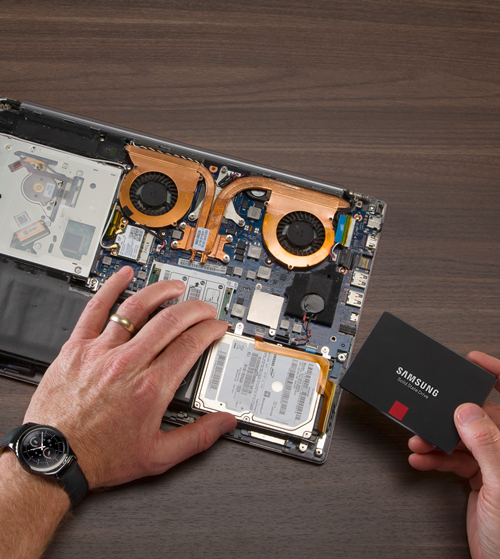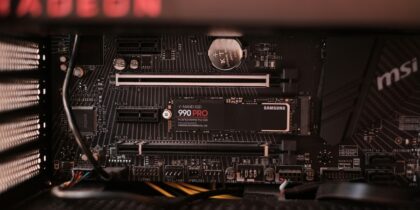Using the cloud for data storage has quickly become a common way for companies to manage their documents in a convenient, accessible way. A December 2021 O’Reilly report found that more than 90 percent of organizations use the cloud, with two-thirds of respondents tapping the public cloud, and 45 percent using a private cloud. In addition, almost half say they are pursuing a cloud-first strategy.
But while cloud computing and storage has its place (it scores high marks for scalability, the ability to do backup and restore, and ease of use), it isn’t the be-all and end-all of storage. In fact, there are some use cases that are better suited to solid state drives (SSDs). Here’s how to determine whether SSDs or cloud storage is better for your business.
SSD vs. cloud: What’s the distinction?
Public cloud storage is remotely managed storage. Users upload their data to the remote servers, which are typically shared between many different users. The data is transmitted via the internet, and users pay for the amount of space they use. Users do not own, manage or maintain the storage that their data sits on.
Prepare for your storage upgrade
Which form factors and interfaces make the most sense for your company's storage needs? Download Now
SSD storage on the other hand is local storage that uses non-volatile solid state chips featuring flash memory cells. Unlike traditional hard disk drives (HDDs), which store data on magnetic platters spinning at high speeds, SSDs have no moving parts. Instead, the storage solution depends entirely on flash memory to store data, which makes it much faster at reading and writing data, both ad hoc and in sustained operations.
Portable SSDs offer the best of both worlds
Increasingly, cloud service providers themselves are using SSD and flash technology in their offerings, thanks to the many benefits that these storage options provide. In fact, according to TechTarget, “Flash and SSD-based storage services in the cloud have really gone from a premium-tier choice that a customer made to a standard tier that the customer is provisioned upon their initial request.”
There are good reasons for this. Cloud storage providers that use SSDs can take advantage of the technology’s speed and reliability. This is also why, despite the benefits of the cloud, some organizations are turning to on-premises, portable SSD offerings for their storage needs.
Portable SSDs solve for the “access anywhere” value offering of cloud storage, with the added benefits of lower cost, local control, better upload and download speeds, and little to no lag. And of course, when you’re using a portable SSD, you aren’t reliant on internet connectivity.
A solution for the future of work
Research shows that, by the end of 2022, 25 percent of all professional jobs will be handled remotely, and the trend should only continue. This has significant repercussions for organizations that store most of their data in the cloud. While a company may have extremely high-speed internet, someone working from a home office may be stuck with consumer connectivity. It can be difficult to upload and download data to the cloud remotely, and it can also be difficult to work on data in that setting. Even employees who work from an office with bulletproof internet access may have days where they travel or don’t go into the office, as hybrid work is also on the rise.
Having a portable SSD can make this a moot issue. For instance, Samsung’s T7 Shield features significant capacity between 1TB and 2TB, and soaring sequential read/write speeds of 1,050/1,000MB/s, thanks to its embedded PCIe NVMe technology. This means people working from home can work on projects that require lots of data or large data files with lag-free editing direct from the drive.
The T7 Shield is rugged and durable, even in the most challenging conditions. The drive is encased in a sturdy metal body that keeps data intact from falls of up to 3 meters (9.8 feet), and it has IP65 resistance to water, dust and temperature, enabling uninterrupted productivity and portability. It’s also secure, as it can be locked down with an AES 256-bit encrypted password. Finally, it can help to save money in the long run. SSDs like the T7 Shield costs significantly less over its lifetime than storing the same amount of data through a cloud storage offering.
With a portable SSD like the Samsung T7 Shield, organizations no longer have to weigh the benefits of SSDs versus the cloud. They get the flexibility and convenience of the cloud combined with the security and reliability of SSDs — all in one package.
Explore Samsung’s business SSDs that work seamlessly with your devices to improve business performance in nanoseconds. And learn how SSDs protect sensitive company data with hardware-level data encryption in this free white paper.











